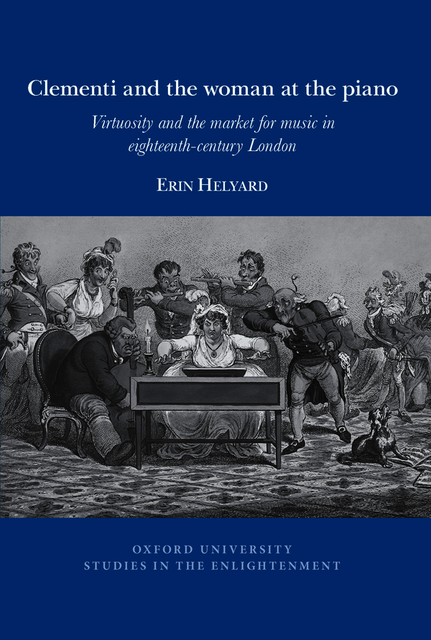Helyard Publishes Book On Clementi And The Rise Of Female Pianism
Artistic Director of Pinchgut Opera Erin Helyard has written his debut book, Clementi and the woman at the piano, published in collaboration with Oxford University Studies in Enlightenment.
Says Helyard, “It isn’t about opera…but rather about another passion of mine: the rise of female pianism in the eighteenth century. If you’ve ever read a Jane Austen novel, you might remember that women at the time were encouraged to learn to play the keyboard as a “accomplishment”—something that was counted alongside things like needlepoint and French as a way to catch a roving suitor’s eye. Much keyboard music was therefore quite simple, pleasant, and easy-to-play. Difficult music, which required practice, was disdained as unnecessary and pretentious and—for some religious-minded writers—dangerous. An Italian virtuoso keyboardist called Clementi changes all of this. He arrives in London in the 1770s and immediately publishes music that is virtuosic, flashy, and thrilling. Despite all the controversies, it becomes a best-seller and Clementi soon went on to become one of the great success stories of the international music scene.”
Centred on the rise of female pianism, this book looks at the emergeance in 1779 of technically difficult keyboard music in Clementi’s six sonatas, Op. 2 which gave female pianists the opportunity to learn and express themselves in a new kind of challenging musical expression. Clementi and the woman at the piano looks at the politics and the sociology of technically difficult music and highlights the tensions between the established Enlightenment thinking and new Romantic ideologies.






Can you be more specific about the content of your article? After reading it, I still have some doubts. Hope you can help me.
Your article helped me a lot, is there any more related content? Thanks! https://accounts.binance.info/hu/register?ref=FIHEGIZ8